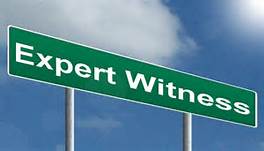
Experts have become the center of attention in modern personal injury trials. The effectiveness and believability of their testimony frequently dictates the outcome of the trial. Accordingly, it is imperative that a personal injury trial lawyer understands the rules and strategies that should be utilized in preparing the “expert” portion of a personal injury case.
Because 95 percent of the automobile personal injury cases undertaken today settle before trial, thoughtful and careful expert witness selection is also important in convincing the other side of your case that you very well may prevail if they do not settle the case.
LEARN MORE
- Steps You Need to Take to Prove Medical Malpractice
- A Virginia Personal Injury Attorney Explains the Role Expert Testimony Plays in a Trial
- Exactly What Is a Certificate of Merit for a Medical Malpractice Claim in Virginia?
The issue of the use of experts in medical negligence cases is not the focus of this presentation. Indeed, that subject could take up a day long instructional session. Nevertheless, it is important for you to be aware of the fact that in 2006, the Virginia State Legislature enacted Section 8.01-20.1 of the Code of Virginia, which now requires that plaintiff’s counsel have a “certificate of merit” signed and in hand prior to requesting service of process upon a health care provider. Failure to comply with this Code section will result in your case being dismissed, likely with prejudice.
When Is Expert Testimony Appropriate?
As a general rule, two rules govern the admissibility of expert testimony. First, expert testimony has been held admissible when the subject matter of the inquiry was not within the range of common experience of the men and women who comprise the jurors in the case. If the average person would not be sufficiently knowledgeable in a given area to make informed judgments based upon factual information presented, expert testimony has been considered essential and, therefore, admissible.
Second, if the matter was within the common range of human knowledge and experience, expert testimony has been determined to be not admissible. Expert evidence is inadmissible on matters of common knowledge, or those as to which the jury are as well informed to form an intelligent and accurate opinion as is the witness.
The principles have been codified in Section 8.01-401.3 of the Code, which states as follows:
A. In a civil proceeding, if scientific, technical, or other specialized knowledge will assist the trier of fact to understand the evidence or to determine a fact in issue, a witness qualified as an expert by knowledge, skill, experience, training, or education may testify thereto in the form of an opinion or otherwise.
B. No expert or lay witness while testifying in a civil proceeding shall be prohibited from expressing an otherwise admissible opinion or conclusion as to any matter of fact solely because that fact is the ultimate issue or critical to the resolution of the case. However, in no event shall such witness be permitted to express any opinion which constitutes a conclusion of law.
C. Except as provided by the provisions of this section, the exceptions to the “ultimate fact in issue” rule recognized in the Commonwealth prior to enactment of this section shall remain in full force.
Paragraph B significantly broadens what expert testimony was admissible prior to its enactment by eliminating the “ultimate fact and issue” prohibition which existed before its enactment. However, it is still intended to prevent an expert from rendering “legal opinions.”
Also, note that there is the common rule that expert testimony, even in cases where the subject is beyond the realm of common human knowledge, must meet certain fundamental requirements. It cannot be speculative or founded upon assumptions that have an insufficient factual basis. They will also be excluded if the expert has failed to consider all of the variables that bear upon the inferences to be deduced from the facts observed. If tests are involved, expert testimony will be excluded unless there is proof that the conditions existing at the time of the tests and at the time relevant to the facts at issue are substantially similar.
Thus, it should be abundantly clear that in many cases it is the lawyer’s job to make sure the expert has all of the tools and all of the knowledge he or she needs to present an effective presentation for the jury and one which will withstand attacks by your adversary.
Types of Experts
In very general terms, in a personal injury case, there are two types of experts: treating healthcare providers and specially retained experts. Occasionally, these categories can overlap where the attorney refers the injured party to a healthcare provider for substantive care and treatment.
Many people view treating healthcare providers as factual witnesses. To an extent, this is true. However, if the healthcare provider is going to be asked by you to render opinion testimony regarding causation issues in your case, as well as medical necessity issues, it is clear that this constitutes opinion testimony and during that portion of his presentation, the healthcare provider becomes an expert witness.
Although it is usually not necessary for the attorney to provide a treating healthcare provider with a great deal of background information regarding how the accident happened and what the circumstances of the particular trauma were, in a recent automobile accident case, a federal magistrate judge in Norfolk excluded the testimony of a treating physician because he had testified at his deposition that his opinions regarding causation were based upon the history he took from the patient alone. In addition, the treating physician was not aware of a number of prior traumas that the plaintiff had suffered. For these reasons, the magistrate judge ruled that the treating physician did not have a sufficient factual basis upon which to render causation testimony and excluded his testimony. Needless to say, this was fatal to the plaintiff’s case.